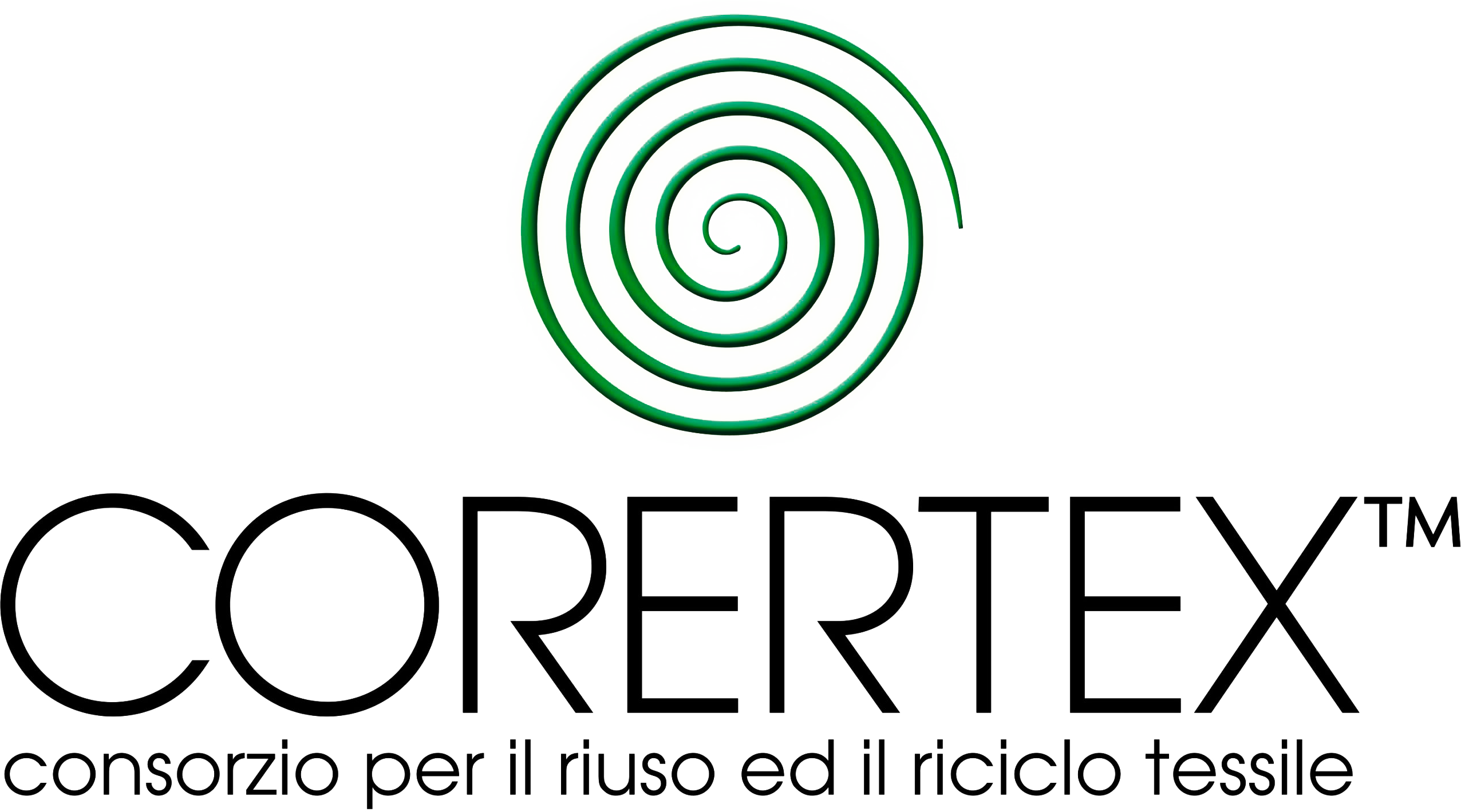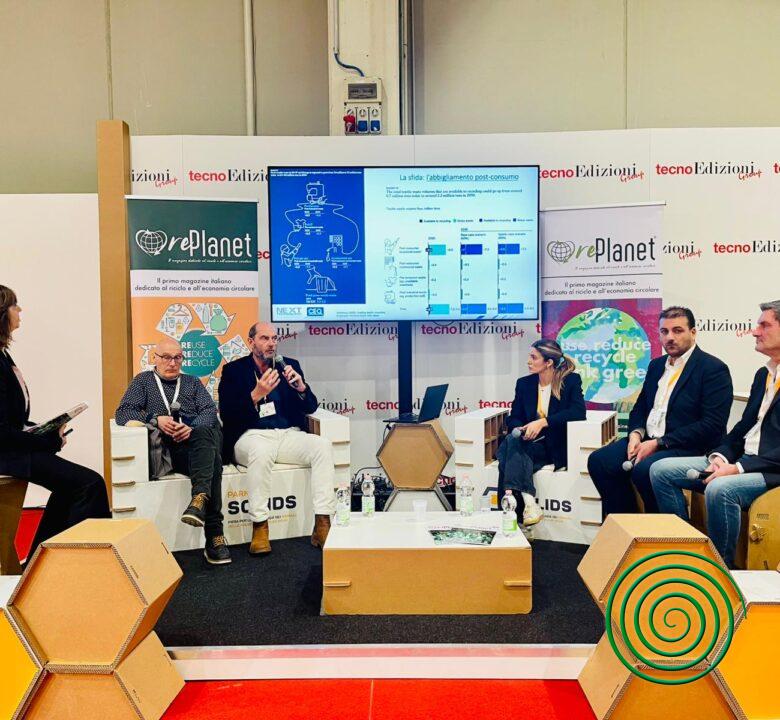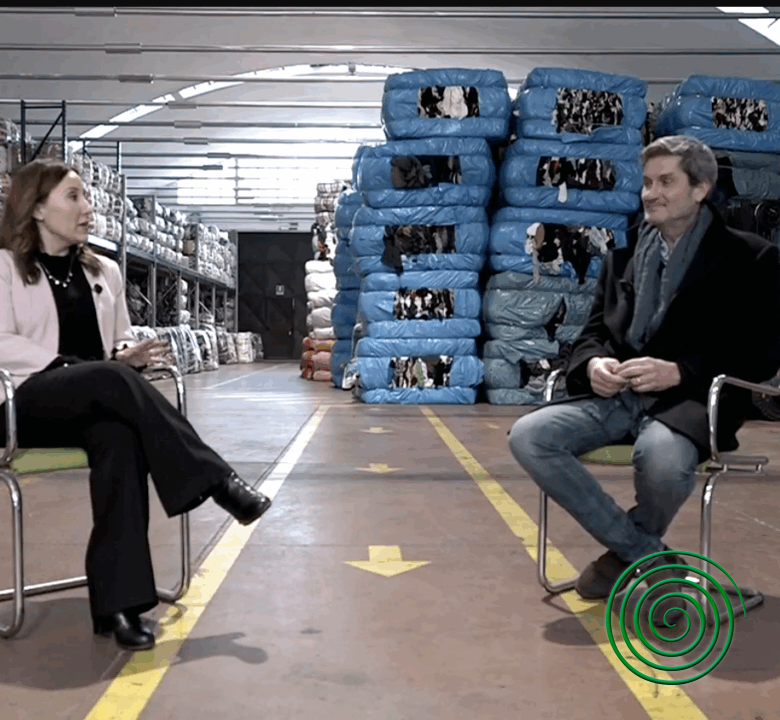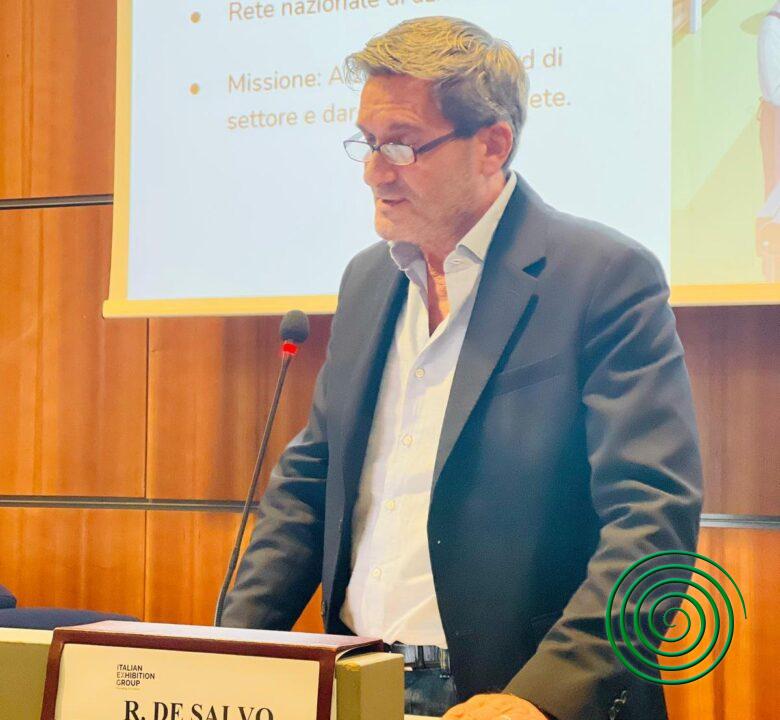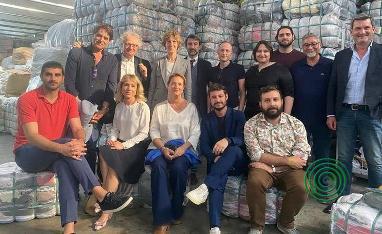
Corertex: The Textile Reuse and Recycling Consortium Emerges in Prato
April 12, 2024
Cenni Meets Corertex Consortium: Signed Commitment Letter Focuses on Reuse and Recycling Development
May 20, 2024Between Innovation and Sustainability: The Role of the Prato District in Promoting Circular Economy
Ilaria Bugetti, the center-left mayoral candidate, has recently signed the electoral protocol of Corertex, the Prato consortium representing 30 companies and about 300 employees in the textile reuse and recycling sector. During the meeting with Corertex president Raffaello De Salvo, Bugetti expressed her full support for the commitments requested by the consortium to promote sustainability and innovation in the textile district.
The commitments signed include:
- Introduction of a specific Ateco code for companies sorting used clothing: This measure is essential to uniquely identify these companies and facilitate access to tax benefits and incentives.
- Establishment of a specific delegation for circular textile economy within the department of environment or economic development: This delegation will allow for more targeted and effective management of policies for textile reuse and recycling.
- Close collaboration between Alia and the reuse and recycling district: The goal is to create a textile hub that enhances the collection and recovery of textile waste, moving beyond the inefficient door-to-door collection system.
- Support for the textile district at the national and European institutional level: Promoting the culture of reuse and recycling and intercepting European funds intended for ecological transition for local companies.
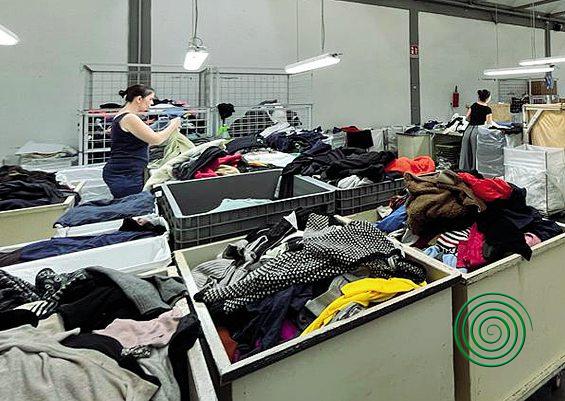
Support for the Circular Economy in the Textile Sector
Bugetti emphasized the importance of supporting the circular economy in the local productive fabric: “Support for the circular economy of our productive fabric is fundamental for me – explains Bugetti –. In the textile field, this theme reaches its highest and most complete expression because it is part of the DNA of our district. Safeguarding professional skills and being recognized by Europe as leaders in productive sustainability will be priority actions.”
De Salvo reiterated the need for an End of Waste decree that the government has yet to approve, highlighting the importance of promoting this need until it becomes a reality. He also emphasized the importance of making the state contribution to the district stable to support investments in ecological transition and innovation.
Challenges and Opportunities for the Textile District
The Corertex document highlights several critical issues, including the lack of a specific Ateco code that creates uncertainties and difficulties in accessing benefits. Other key points include the need for a permanent council commission to listen to local stakeholders on textiles, reuse, and recycling, and the importance of leveraging the synergies and know-how available in the area to enhance the collection and recovery of textile waste.
Finally, De Salvo concluded the meeting by underscoring the importance of having the support of the mayoral candidates on crucial issues for the textile district: “It was a constructive meeting where we discussed the future of the textile district. Having the support of the mayoral candidates on issues that are crucial for us is fundamental, especially in view of the approach towards new regulations that will change the functioning of the reuse and recycling sector in the near future.”
Credits: Daniele Di Stefano, environmental journalist with a background in associationism and nonprofit research, collaborates with various publications.

